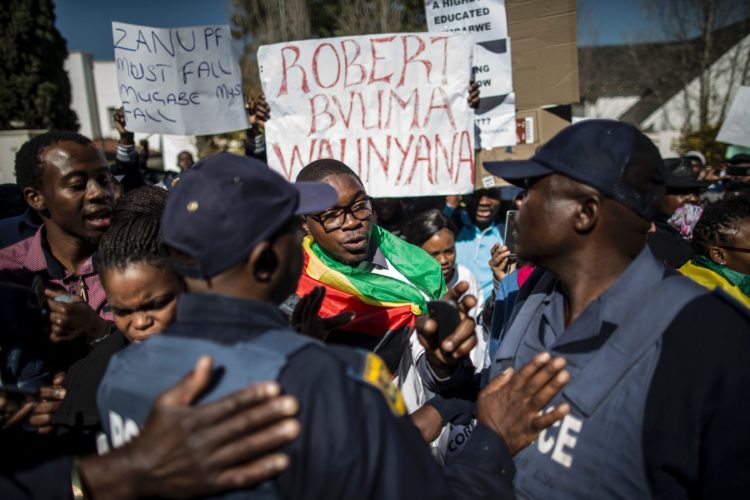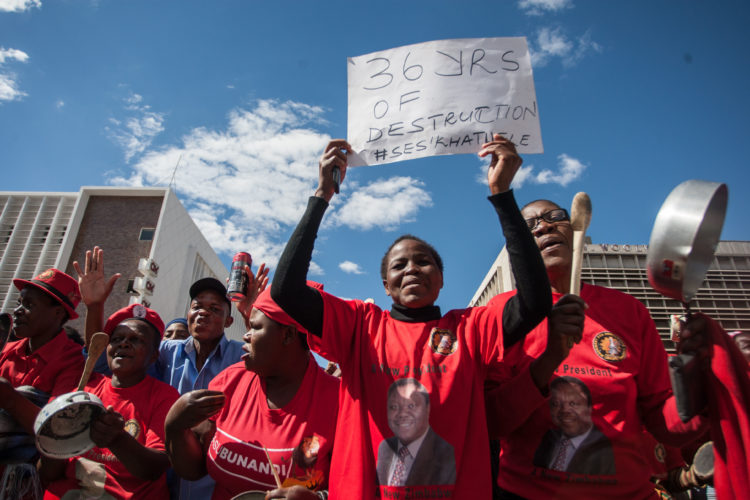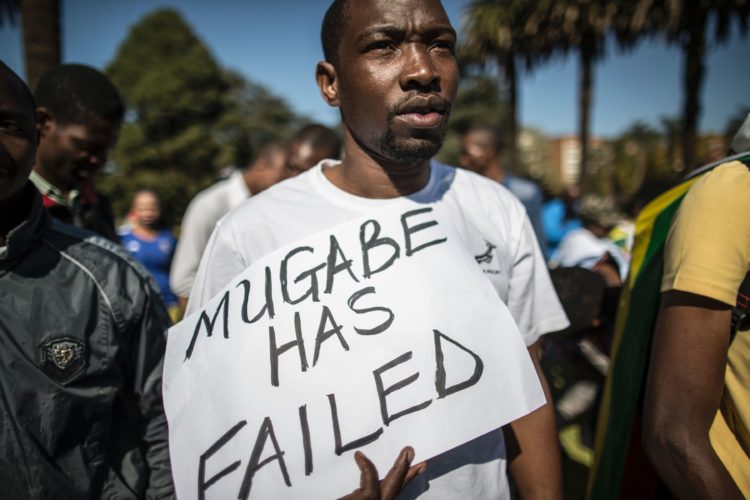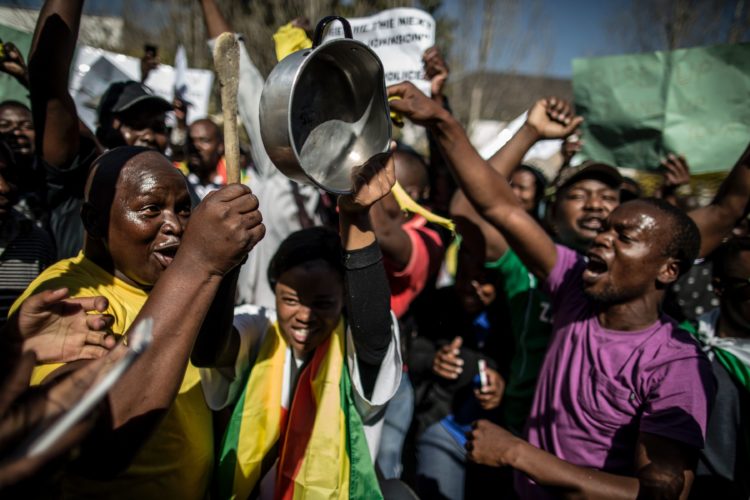In recent weeks Zimbabwe has witnessed a flurry of protests against the deteriorating socio-economic conditions in the country. Apart from social media protests such as #ThisFlag, #Tajamuka etc, physical protests in the past few weeks have been eight times more than those witnessed in the past eight years in the country. The protests which culminated in a one-day national strike dubbed #ShutDownZimbabwe have already made significant news headlines across the world.
The social-media-engineered expressions of protest are concentrated among young urbanites and diasporans.
Analysts have hailed them as a show of citizen power by long-suffering Zimbabweans. But it’s not enough: more work needs to be done to facilitate social reorganisation and harmony in the country than a mere expression of resent against the status quo.
Apart from pointing fingers at President Robert Mugabe’s elongated rule, the national protests – that are largely propelled by social media – have provided very little in terms of the alternative that the citizens of Zimbabwe want to see in their country. Furthermore, the social-media engineered expressions of protest are concentrated among young urbanites and diasporans who have access to the internet, leaving out a huge chunk of the impoverished and digital underclass rural majority.

In a way, the protests mirror the class-based fissures that have come to characterise Zimbabwean society.
Zimbabweans, including myself, have sat on the sidelines for a long time watching their country slide to the doldrums.
Zimbabwe currently faces huge challenges. Tackling them requires more than just finger-pointing or staying away from work in a country where the unemployment rate is estimated to be more than 90 per cent. The hashtag protests still have a long way to go before they can deliver real results. Only a broad-based, pragmatic social movement is what Zimbabwe needs today not hyped-up, one-man-led social-media campaigns that appeal only to a section of the society.
The country’s seemingly intractable problems require everyone to put their heads together to find a resolution. The fact of the matter is that Zimbabweans, including myself, have sat on the sidelines for a long time watching their country slide to the doldrums.

Mugabe’s misrule has infected every level of the society that nothing less than a national clean-up of the society is required to set the country on a new trajectory. And that will require serious visioning beginning with a process of national healing. Of course, hashtags can play a part but given the ephemeral nature of social media, the work to repair Zimbabwe will require rolling up sleeves more than tapping away on a mobile phone, laptop or desktop computer. Put simply, it will take more than social media to untangle the complex power dynamics that have shaped Zimbabwe for the past 36 years since liberation from British colonial rule.
At the very least, the path the country embarks on will be largely determined by the outcome of political developments that lie at the heart of current problems in our country. One of the main problems that define and sustain the crisis has been the partisan approach to issues of national significance. This has forestalled peace, progress and prosperity.
Zimbabwe can only extricate itself from the current crisis with a political settlement.
In the absence of an all-inclusive political settlement, the nation of Zimbabwe will continue down the road of further disintegration and decline characterised by a disunity of vision and purpose. The decline will inevitably infect all sectors of our society. There will be an increase in lawlessness, brain drain, corruption, poverty and disease.
As it is, Zimbabwe can only extricate itself from the current crisis with a political settlement, which will bring the much-needed stability to the country. There’s need for a process of national healing in which all outstanding national issues will be brought out in the open without fear or favour. Thus, the question is not whether there will be a transition in the country, but when it will happen.
However, that transition will be a brainchild of political change and confidence-building measures both locally and internationally. The transition will likely involve initial moderate reforms to get the economy back on track while the political details are being worked out.

The transition period could last from six months to more than two years. The more protracted the transition period, the greater will be the degree of polarisation and generalised social and political conflict.
While the transition period will be mainly aimed toward stabilisation, the reform era will involve the move towards a more vibrant democratic society and the opening of the politico-economic system, creating new opportunities for investors and entrepreneurs.
The struggle for a new Zimbabwe requires its progressive citizens to get off their butts.
Today, Zimbabwe is fragmented, unequal, disaffected and full of resentment. All the protests that have erupted during the country’s winter of discontent have been ignited by those who feel politically voiceless, disengaged and not involved in the devouring of the increasingly diminishing national cake. In the absence of a solid national vision, the protests which are steeped in hate will progressively peter out.
Even Mugabe was to step down, in the absence of a reset in national attitude and character, the country will continue to totter on the brink unable to fully harness its widely acknowledged potential.

The familiar pain and trauma that Zimbabweans have experienced over the past two decades can provide the basis to build a better, more hopeful and humane society.
Zimbabwe needs something deeper; it needs to confront itself in a more dynamic, honest manner in order to unlock its full potential. It’s a question that requires some time and reflection. To transform, Zimbabweans need a thoughtful creation of new ways, rather than being reactive to problems that they have sat around and watched fester for over a long time. The struggle for a new Zimbabwe requires its progressive citizens to get off their butts and stand up for what they believe in a manner that constantly interrogates, develops our thinking and raises it toward new horizons.
